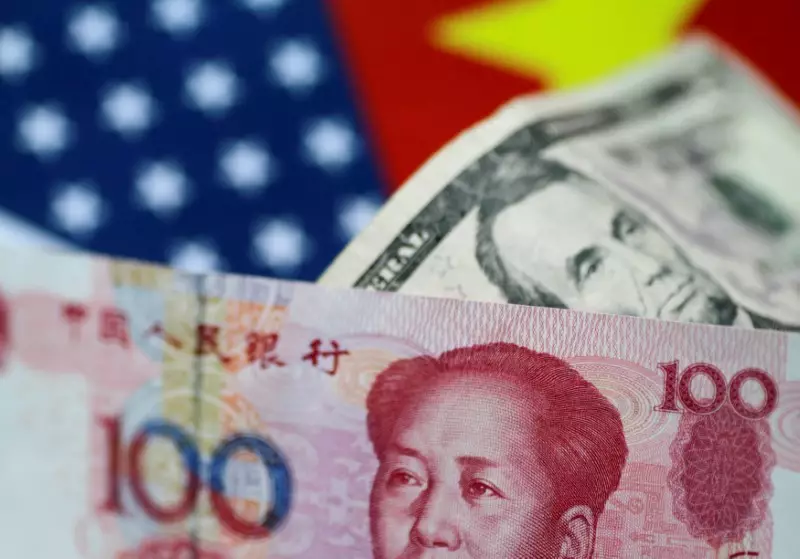Strategic Currency Moves: Navigating the USD/CNY Pair Ahead of Trump’s Inauguration

As Donald Trump’s inauguration approaches, investors are bracing themselves for potential shifts in U.S. economic policy that could have significant ramifications for currency markets, particularly the USD/CNY pair. UBS, a global financial services company, has advised its clients to adopt a long position on this currency pair as a proactive measure against the potential risks associated with policy changes following the inauguration. Analysts are forecasting that Trump’s policies could drive market volatility, raising questions about how the foreign exchange (FX) markets are positioned to handle these uncertainties.
The weeks leading up to Trump’s inauguration are characterized by a relative scarcity of major economic data releases, focusing attention on the political transition itself. Analysts at UBS have posited that, although immediate tariff actions on day one may be unlikely, the mere contemplation of such measures will dominate market sentiment. The currency markets have not fully adjusted to the prospect of substantial tariffs, leaving the door open for dramatic shifts should any policy announcements materialize. Historically, significant tariff adjustments have the potential to devalue the CNY in relation to the USD, which may alter the competitive landscape not just for China, but also for other pro-growth currencies like the Euro.
One noteworthy aspect of this situation is the increased volatility in FX markets, which has escalated due to divergent economic expectations and specific regional challenges. The currencies of nations such as the UK and Canada have experienced fluctuations rooted in their individual economic landscapes. UBS highlights that negative developments could lead to heightened actual and implied volatility, particularly for the yuan. Recently, the USD/CNY pair has seen upward pressure, trading near the upper bounds of its fixing range. This trend is partly attributable to concerns regarding the potential for new U.S. tariffs aimed at China, which UBS anticipates could exacerbate downward pressure on the yuan.
As investors anticipate Trump’s possible tariff strategies aimed at China, the yuan is expected to encounter increased challenges. The People’s Bank of China (PBoC) may need to respond by allowing the yuan to depreciate further, mitigating some adverse effects of potential U.S. tariffs. However, the financial outlook remains clouded due to weak domestic economic indicators, which only serve to heighten negative sentiment surrounding the yuan. This backdrop is fostering stronger demand for foreign exchange and leading to significant capital outflows from China.
UBS’s position endorses a long strategy on USD/CNH, setting a target of 7.50 in the near term, complemented by a prudent stop-loss level at 7.20. The anticipated carry of 2.1% per annum presents a compelling case for investors willing to navigate the complexities of this volatile environment. As the political landscape shifts and the international economic climate evolves, keeping a close watch on currency movements and economic indicators will be critical for effective investment strategies in 2023 and beyond.





